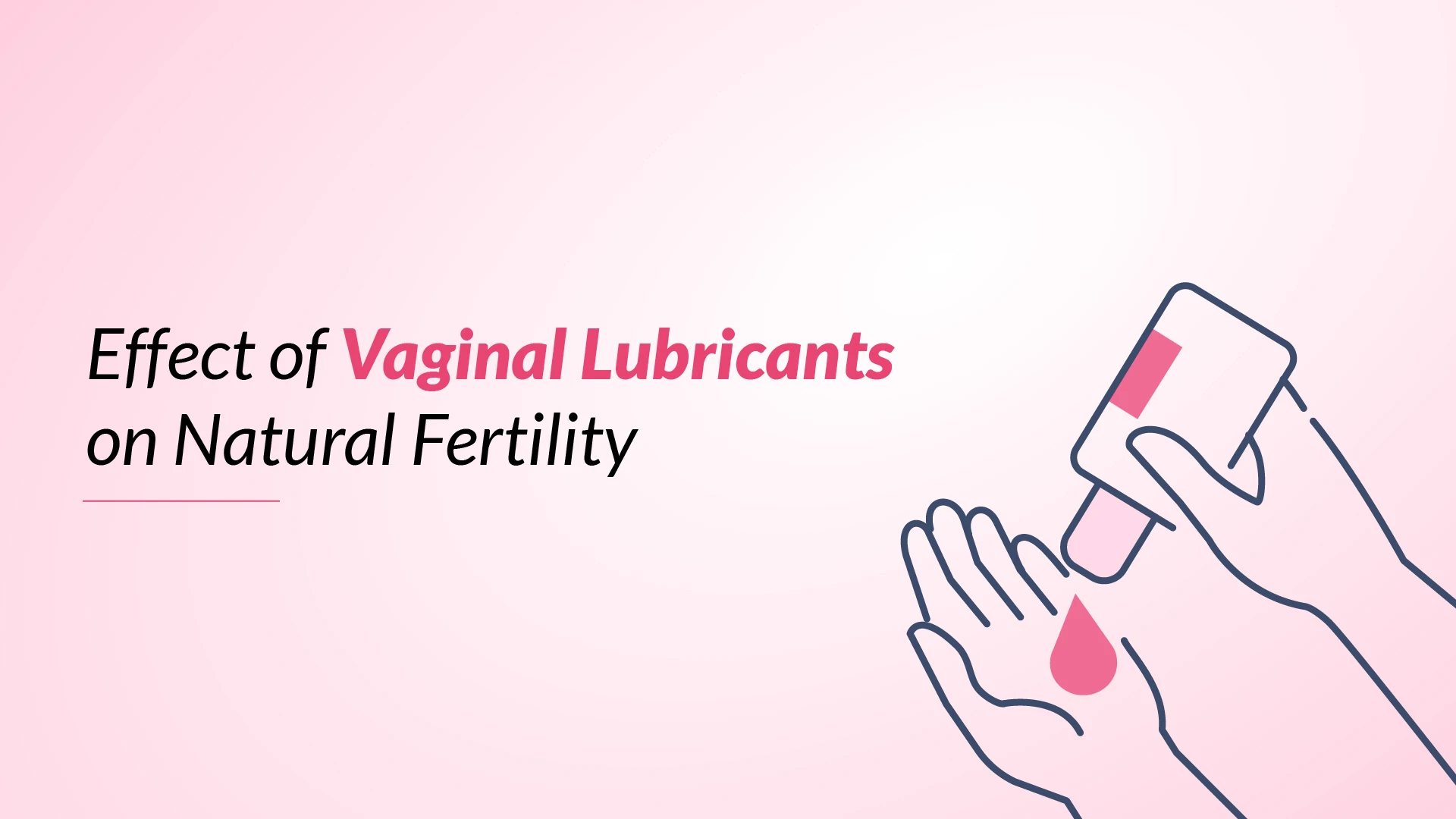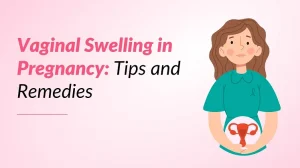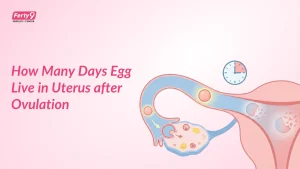Fertility is a delicate process influenced by various factors, including the use of vaginal lubricants during sexual intercourse. While these products are designed to enhance comfort and pleasure, their impact on natural fertility has been a subject of ongoing discussion and research. In this blog, we will discover the effects of vaginal lubricants on conception, shedding light on the importance of cervical mucus, the risks and side effects associated with lubricant use, and the impact on sperm motility and overall fertility.
Also read: Tips for Maintaining Optimal Vaginal Hygiene
Importance of cervical mucus in conception
Cervical mucus plays a key role in the conception process. This natural lubricant, produced by the cervix, undergoes changes throughout the menstrual cycle, becoming more abundant, stretchy, and fertile during ovulation. This fertile cervical mucus creates a hospitable environment for sperm, facilitating their journey to the egg for fertilisation. Understanding the significance of cervical mucus is essential when considering the use of vaginal lubricants during attempts to conceive.
Risk and Side Effects Associated with the Use of Lubricants
While vaginal lubricants can provide relief from dryness and discomfort, their use is not without potential lube side effects, particularly when trying to conceive naturally.
Toxic Chemicals in Lubricants
Many commercially available lubricants contain various chemicals, some of which may be potentially harmful to reproductive health. These chemicals can include parabens, glycerin, and other synthetic additives that could disrupt hormonal balance, cause irritation, or negatively impact sperm quality and motility.
Allergic Reactions and Skin Irritation
Some individuals may suffer from allergic reactions or skin irritation when using specific lubricants. These reactions can be in the form of mild redness and itching to more severe inflammatory responses, which can further complicate the conception process.
Interference with Fertility
Certain lubricants have been found to interfere with fertility by altering the natural pH balance of the vaginal environment, affecting sperm motility, or creating a physical barrier that hinders sperm from reaching the egg.
Yeast Infections
The use of some lubricants can disrupt the delicate balance of the vaginal microbiome, potentially leading to an overgrowth of yeast or other harmful microorganisms, resulting in infections that may impact fertility.
Drying Up Quickly
Many lubricants, mainly water-based varieties, can dry up quickly, leading to increased friction and discomfort during intercourse. This can counteract the intended purpose of using a lubricant and potentially cause further irritation.
Irritation From Warming, Tingling, or Flavoured Lubricants
Lubricants with added ingredients like warming agents, tingling sensations, or flavours can cause irritation to the delicate vaginal tissues, potentially leading to inflammation and discomfort, which may negatively impact fertility.
The Impact of Lubricants on Sperm Motility
Sperm motility, or the property of sperm to swim and reach the egg, is a crucial factor in successful fertilisation. Various aspects of lubricants can potentially affect sperm motility, including:
Increased Viscosity Hindering Sperm Movement
Some lubricants have a higher viscosity or thickness, which can impede the movement of sperm, making it challenging for them to reach the egg.
pH Imbalance and Sperm Function
The pH balance of the vaginal environment is crucial for optimal sperm function. Many lubricants can alter this delicate balance, potentially affecting sperm motility and viability.
Osmolality and Sperm Membrane Damage
Osmolality, or the concentration of solutes in a solution, plays an elementary role in maintaining the integrity of sperm cell membranes. Lubricants with an imbalanced osmolality can cause damage to sperm membranes, impacting their ability to fertilise the egg.
Presence of Spermicidal Agents
Some lubricants contain spermicidal agents, which are designed to immobilise or kill sperm, making them unsuitable for use when trying to conceive naturally.
Temperature Effects on Sperm Activity
Certain lubricants can cause changes in temperature that may affect sperm motility and viability. Extreme temperatures (excessive hot or cold) can negatively impact sperm function.
Impact of Chemical Additives
Many lubricants contain various chemical additives, such as preservatives, fragrances, and colourants, which can potentially harm sperm cells & impair their ability to fertilise the egg.
How Vaginal Lubricants Can Affect Fertility
The use of vaginal lubricants can impact fertility in several ways, including:
Sperm Mobility Impact
As mentioned earlier, the viscosity, pH, and osmolality of lubricants can directly affect sperm motility, hindering their ability to reach & fertilise the egg.
pH Imbalance
The vaginal environment has a specific pH range that is optimal for sperm survival and function. Lubricants that disrupt this delicate balance can negatively impact sperm viability and fertility.
Viscosity Effects
Lubricants with high viscosity can create a physical barrier that impedes sperm movement, making it more difficult for them to reach the egg.
Impact on Cervical Mucus
Some lubricants can interfere with the natural production and quality of cervical mucus, which is essential for facilitating sperm migration and protecting sperm from the acidic vaginal environment.
Reduction in Sperm Viability
Certain components in lubricants, such as preservatives or spermicidal agents, can directly damage or kill sperm cells, reducing their overall viability and ability to fertilise the egg.
Compatibility with Sperm
Not all lubricants are compatible with sperm, and some may contain ingredients that are toxic or harmful to sperm cells, leading to reduced fertility.
Effects on Vaginal Flora
The vaginal microbiome helps in maintaining a healthy environment for conception. Lubricants can potentially disrupt this delicate balance, leading to infections or other conditions that may impact fertility.
Influence on Hormonal Treatments
For couples undergoing fertility treatments (in vitro fertilisation (IVF) or intrauterine insemination), the use of specific lubricants may interfere with the success of these procedures or interact with hormonal medications.
Natural Methods to Enhance Lubrication
If you are trying to conceive naturally, several natural practices can help enhance lubrication without the potential risks associated with commercial lubricants:
- Foreplay and Arousal: Engaging in extended foreplay can increase natural lubrication by stimulating arousal and promoting vaginal moisture production.
- Dietary Changes: Consuming foods with excessive omega-3 fatty acids (fatty fish, flaxseeds, and walnuts) can help improve vaginal lubrication.
- Hydration: Water is a fertility-friendly lubricant. Drinking plenty of water & staying hydrated can help maintain optimal vaginal moisture levels.
- Herbal Supplements: Certain supplements, such as evening primrose oil or sea buckthorn oil, may help promote natural lubrication.
- Vaginal Moisturisers: Over-the-counter vaginal moisturisers explicitly designed for vaginal dryness may be a safer alternative to lubricants when trying to conceive.
Find Hope and Solutions for Female Infertility and Male Infertility — Explore Our Comprehensive Services
IVF Treatment
IUI Treatment
ICSI Treatment
PICSI Treatment
Fertility Preservation Service
Blastocyst Culture & Transfer Treatment
Genetic Screening & Testing
Conclusion
Vaginal lubricants can provide relief from dryness and discomfort during sexual activity, but their use may have potential implications for natural fertility. While some lubricants may be safer than others, it is necessary to carefully consider the possible side effects, particularly when trying to conceive. If you are experiencing vaginal dryness or have concerns about fertility, it is advisable to consult with a doctor for personalised advice and guidance.





























